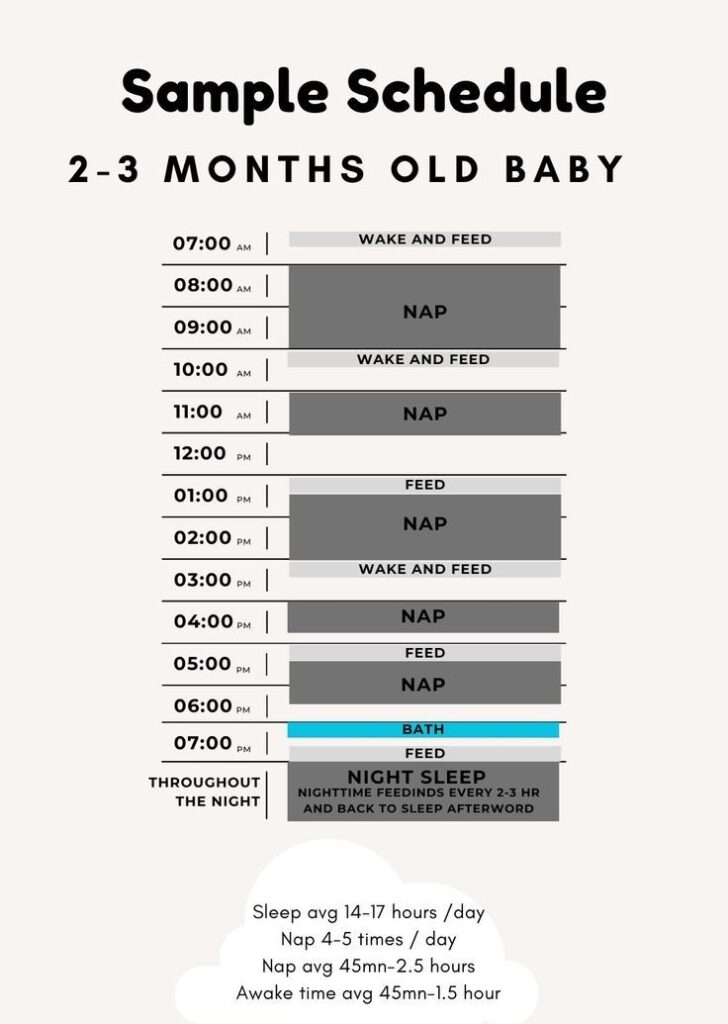Sleep Facts for 4 Months Old Baby
- Average sleep duration is 12 to 16 hours per day
- Average nap duration ranges from 30 minutes to 2 hours
- Average awake and playtime duration is 1.5 hours to 2.5 hours
- Nap 3-4 times a day
Sample Sleep Schedule for 4 Months Old Baby
Discovering a routine that works for your little one can be a game-changer for both baby and parents. Check out this sample sleep schedule designed with your 4-month-old baby:
7:00 AM: Wake And Feed
Start the day with a nourishing feeding session to provide your baby with the essential nutrients they need.
7:30 AM: Awake and Play Time
Engage in some interactive playtime activities to stimulate your baby’s senses and promote development.
8:30 AM: Nap
Help your baby settle down for a morning nap to ensure they’re well-rested and ready for the day ahead.
10:30 AM: Wake And Feed
Offer another feeding session to keep your baby satisfied and content.
11:00 AM: Awake and Play Time
Enjoy some quality bonding time with your baby through play and exploration.
12:00 PM: Nap
Time for another nap to recharge and rejuvenate.
1:00 PM: Wake And Feed
Ensure your baby is well-fed and satisfied with another feeding session.
2:15 PM: Nap
Encourage your baby to drift off to sleep for a mid-afternoon nap.
3:30 PM: Wake and Feed
Another feeding session to keep your baby nourished and happy.
4:00 PM: Awake and Play Time
Engage in some fun activities and interactive play with your baby.
5:00 PM: Nap
Wind down the day with a short nap to prepare for the evening ahead.
6:00 PM: Bath and Bedtime Routine
Start the bedtime routine with a calming bath and soothing bedtime rituals to signal to your baby that it’s time to wind down.
7:30 PM: Feed
Offer a comforting feeding session before bedtime to ensure your baby is satisfied.
8:00 PM: Night sleep
Put your little one down for the night, allowing them to drift off into a peaceful night’s sleep.
Throughout the night:
Feed every 3-4 hours and sleep right afterward
Throughout the night, your 4-month-old baby may wake up every 3-4 hours for nighttime feedings. This pattern is typical for infants as their stomachs are still small and they require frequent feedings for proper growth and development. Keep the environment calm and quiet to encourage them to go back to sleep afterward. With time and patience, your baby will gradually start to sleep for longer stretches at night.

This sample sleep schedule offers a structured yet flexible approach to help you and your baby establish healthy sleep patterns. Remember, every baby is different, so feel free to adjust the schedule to meet your little one’s unique needs and preferences.

